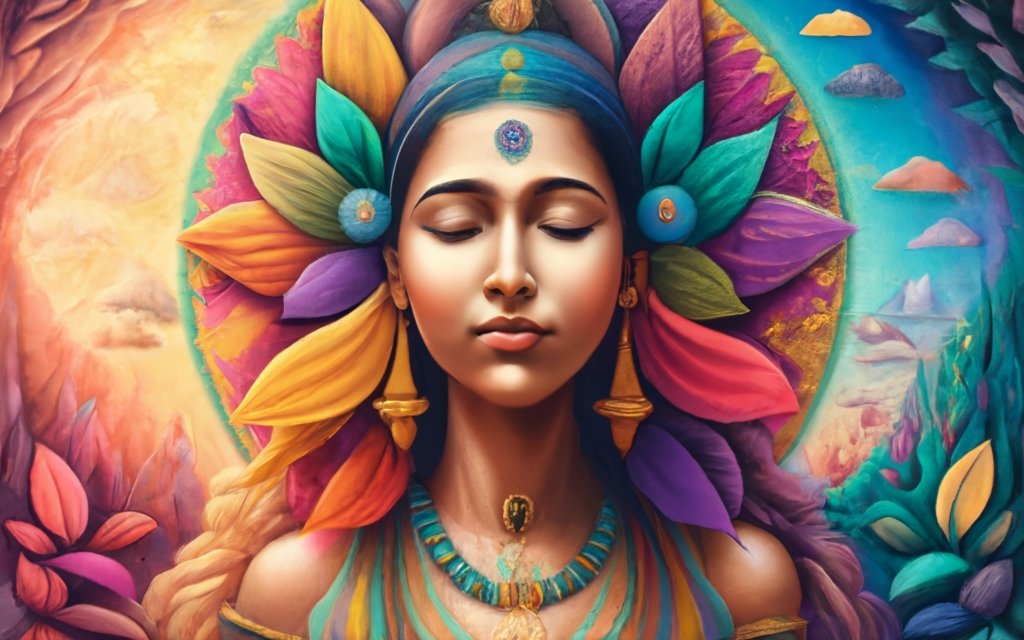What are the 4 Types of Spirituality?
Spirituality is a profound aspect of human existence that encompasses a wide array of beliefs, practices, and experiences. It is often associated with a deep connection to the divine, self-discovery, and personal growth. In this article, we will explore the four primary types of spirituality and how they relate to various religious traditions and practices, including keywords like “Jesus Christ,” “daily devotional,” “prayer for healing,” and more.
1. Christian Spirituality

Christian spirituality is deeply rooted in the teachings of Jesus Christ. Followers of Christianity find their spiritual path through faith in Jesus, the Son of God. Key aspects of Christian spirituality include prayer, scripture reading, and attending church services. The Our Father Prayer and The Lord’s Prayer are fundamental prayers in Christianity, emphasizing the importance of connecting with God through daily devotionals and seeking healing through prayer.
Christian Denominations
Within Christian spirituality, various denominations exist, such as the Church of Jesus Christ of Latter-day Saints (LDS Church) and the Church of England. These denominations may have unique practices and interpretations of scripture, but they all center their spirituality around Jesus Christ and the Bible.
2. Emotional and Mental Well-being

Emotionally healthy spirituality is a type of spirituality that focuses on inner healing and well-being. It encourages individuals to explore their emotional and mental states while seeking a deeper connection with the divine. This type of spirituality often involves practices like meditation, mindfulness, and biblical fasting to cleanse the mind and body.
3. Theological Spirituality

Theological spirituality is deeply intertwined with the study and understanding of theology, which pertains to the nature of God and divine revelation. It seeks to answer profound questions about the attributes of God, the meaning of salvation, and the workings of the Holy Spirit. This type of spirituality delves into the intellectual aspects of faith and may involve lectio divina (divine reading) to gain insights from sacred texts.
Interfaith Dialogue
Theological spirituality often engages in interfaith dialogue, exploring common ground and differences among various religious traditions, including Abrahamic religions like Christianity, Islam, and Judaism.
4. Personal and Contemporary Spirituality

In a modern context, personal and contemporary spirituality has gained prominence. This type of spirituality allows individuals to explore their beliefs and practices outside the boundaries of traditional religious institutions. It often includes a focus on self-discovery, personal growth, and finding meaning in life.
Spiritual Practices
Practices like yoga, meditation, and mindfulness are commonly associated with personal and contemporary spirituality. It also incorporates elements of belief systems like A Course in Miracles, which emphasizes personal transformation and understanding.
In conclusion, spirituality is a multifaceted aspect of human life that can take on various forms and meanings. Whether you find your spiritual path through traditional religious practices, emotional well-being, theological exploration, or personal growth, it is essential to seek what resonates with you and leads you toward a deeper understanding of the divine. Regardless of your chosen path, spirituality is a journey of self-discovery and connection to something greater than oneself.
The Role of Faith and Belief

Spirituality is closely intertwined with faith and belief systems. For Christians, faith in the teachings of Jesus Christ is central to their spirituality. The concept of salvation holds immense significance, as it represents the hope for eternal life through faith in Christ.
Names of God
Within Christian spirituality, there is a deep reverence for the divine, often expressed through various names of God found in the Bible. These names reflect different aspects of God’s nature and character, fostering a profound connection between believers and the divine.
The Power of Prayer
Prayer is a universal spiritual practice that transcends religious boundaries. It serves as a means of communication with the divine, a source of strength, and a way to seek healing and guidance. In Christian spirituality, prayers such as the Prayer for Healing and Strength are essential for believers facing challenges or illness.
Intercessory Prayer
Intercessory prayer is a vital aspect of spirituality, where individuals pray on behalf of others, seeking God’s intervention in their lives. It is a way to express care and support for others within a spiritual context.
The Quest for Knowledge
In theological spirituality, the pursuit of knowledge and understanding is paramount. This involves studying sacred texts, delving into the intricacies of theology, and contemplating theology meaning and its significance in one’s life. Theological spirituality encourages individuals to question, seek answers, and deepen their relationship with the divine.
Diversity of Christian Denominations
Christianity is a diverse faith with numerous denominations, each with its distinct beliefs and practices. Understanding the differences and similarities between these denominations is essential in exploring the richness of Christian spirituality. From Catholicism to Orthodox Christianity to non-denominational churches, each offers a unique spiritual experience.
The Essence of Worship

Worship is a core element of spirituality in various traditions. It involves the expression of reverence, devotion, and gratitude to the divine. The Eucharist, a central rite in Christianity, represents the sharing of the body and blood of Christ in a sacred act of worship.
Symbols and Art

Art has played a significant role in expressing and celebrating spirituality. Christian art is a vivid example, with depictions of biblical stories, religious figures, and divine symbols. These artworks not only serve as sources of inspiration but also as a means of conveying spiritual messages and stories to believers and the wider community.
The Search for Inner Peace
Across different types of spirituality, there is a common pursuit of inner peace. Whether through meditation, prayer for peace, or mindfulness, individuals seek to find solace and tranquility within themselves, ultimately connecting with a sense of the divine presence.
In conclusion, spirituality is a deeply personal and diverse journey. It encompasses various beliefs, practices, and experiences, each contributing to a richer understanding of the human connection to the divine. Whether one’s spirituality is rooted in traditional religious teachings or embraces more contemporary and personal expressions, it remains a profound aspect of the human experience. Ultimately, the search for spiritual fulfillment is a quest that can lead to personal growth, inner peace, and a deeper connection with the sacred, regardless of one’s chosen path.
Frequently Asked Questions (FAQ)
1. What is the essence of spirituality?
Spirituality encompasses the search for meaning, purpose, and connection to something greater than oneself. It often involves exploring beliefs, practices, and experiences that nurture the human spirit and promote personal growth.
2. Can spirituality be practiced outside of organized religion?
Yes, spirituality can be practiced independently of organized religion. Personal and contemporary spirituality allows individuals to explore their beliefs and practices outside traditional religious institutions, emphasizing self-discovery and personal growth.
3. How does spirituality relate to religion?
Spirituality and religion are closely connected but not synonymous. Religion often provides a structured framework for spirituality, offering beliefs, rituals, and community support. Spirituality, on the other hand, is a broader concept that can be practiced within or outside religious contexts.
4. What role does faith play in spirituality?
Faith is a fundamental element of spirituality. It involves trust and belief in something beyond the material world, whether it’s a higher power, a divine presence, or a set of guiding principles. Faith provides a foundation for spiritual practices and beliefs.
5. Are there different types of spirituality within Christianity?
Yes, there are various expressions of spirituality within Christianity, reflecting the diversity of Christian denominations. Some Christians emphasize prayer, while others focus on theological study or emotional well-being. Each denomination may have unique spiritual practices and beliefs.
6. How can I start my spiritual journey?
Starting a spiritual journey involves self-reflection and exploration. Begin by identifying what aspects of spirituality resonate with you and what questions you seek to answer. You can start by reading sacred texts, attending religious services, meditating, or seeking guidance from spiritual leaders.
7. Is spirituality limited to religious traditions?
No, spirituality is not limited to religious traditions. Personal and contemporary spirituality allows individuals to create their unique spiritual paths. It can incorporate elements from various belief systems and practices, emphasizing personal growth and self-discovery.
8. What is the significance of symbols in spirituality?
Symbols hold deep meaning in spirituality. They often represent abstract concepts, principles, or stories that are essential to a particular belief system. Symbols can serve as a source of inspiration, contemplation, and a means of conveying spiritual messages.
9. How can I find inner peace through spirituality?
Finding inner peace through spirituality often involves practices such as meditation, prayer for peace, and mindfulness. These practices encourage self-awareness, emotional well-being, and a sense of connection to the divine, ultimately leading to a profound sense of inner tranquility.
10. Can spirituality coexist with other belief systems?
Yes, spirituality is inclusive and can coexist with other belief systems. It’s possible to draw inspiration from multiple sources and incorporate them into your spiritual journey. The key is to maintain an open and respectful attitude toward diverse perspectives.
In summary, spirituality is a multifaceted concept that encompasses a wide range of beliefs and practices. It can be deeply personal and is not limited to any specific religion or tradition. Whether you are beginning your spiritual journey or seeking to deepen your understanding, these FAQs provide insights into the diverse world of spirituality.




